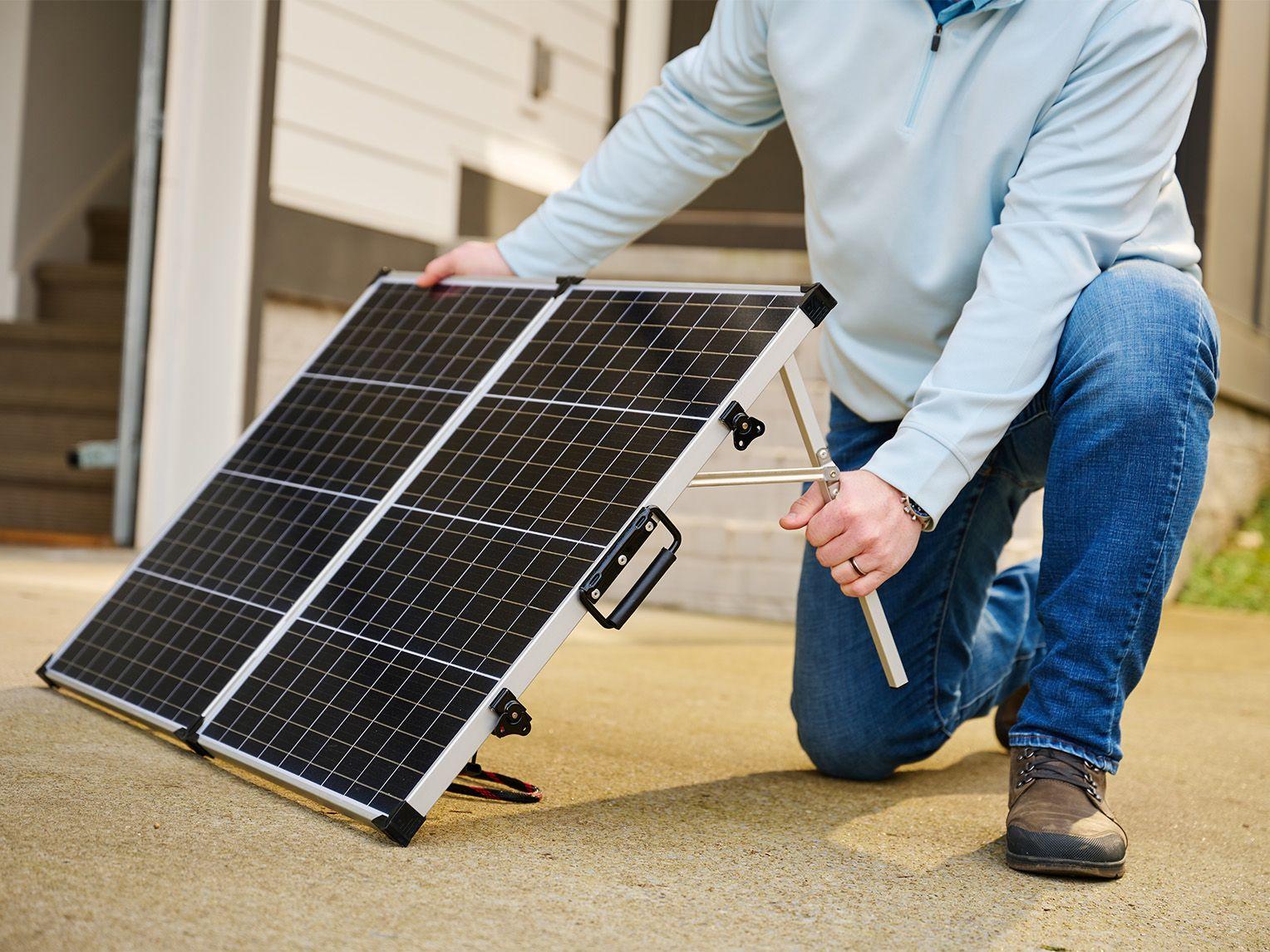Solar Power Myths We Can Safely Put to Rest

Solar energy has grown by leaps and bounds in the U.S. over the past 20 years. As of the end of 2018, America had 64.2 gigawatts of installed solar.
That’s enough to power 12.3 million homes. In 2018 alone, Americans installed 10.6 gigawatts of solar. There are now 1.47 million solar panels in use in the 48 contiguous states.
Solar panel installer is considered the fastest growing job in the country. There are now more than 240,000 solar workers. That’s more than the coal, oil and natural gas industries combined.
U.S. solar farms are growing in number and size. Solar Star in California is four times the size of Central Park in New York City. It produces 579 megawatts of solar energy.
Why isn’t our solar energy use higher?
Those are impressive statistics. But solar energy still accounts for only 1.6 percent of total electricity generation in America. Why isn’t that percentage higher? One of the reasons is that the start-up costs for going solar can be high.


There’s another reason more electricity generation in the U.S. does not yet come from solar energy. Too many people believe myths about solar power. Today I want to take a look at some of those myths.
Myth: Solar panels need sunlight to work
It’s true that solar panels produce more electricity when it’s sunny than when it’s cloudy.
But it’s also true that solar panels generate electrical power in cloudy weather and when temperatures are colder.
Solar panel technology has improved. Panels can work effectively and efficiently even when the sun is not shining brightly.
And when the sun is shining on a cold winter day, they can generate about as much electrical power as on a hot summer day.
Myth: Solar panels are too expensive & require maintenance
Over the past 10 years, the cost of solar panels has gradually dropped as more people install them.
In fact, prices for solar panels have decreased by approximately 30 percent during that time.
And incentives in the form of federal and state tax rebates have increased. Homeowners can offset up to 30 percent of a solar purchase. As previously mentioned, solar panels will save you money by reducing your power bills.
Installation of solar panels is a physical and know-how challenge for the average American. But not for a reliable solar company. And the panels are built to withstand harsh weather conditions.
There’s very little maintenance with solar panels. Mainly due to the fact that they have no moving parts. And they can be periodically cleaned with only water. In most parts of the country, rain takes care of that chore.
Myth: Solar panels damage roofs & lower resale value
Actually, the opposite is true. Solar panels are durable. They protect the sections of a roof they cover, extending that roof’s life.
What if a roof section needs to be repaired? That’s easily handled. Solar panels are mounted on a railing system atop a roof instead of being attached to that roof. They can be temporarily removed without a problem.
Sealant is used if there are gaps between the panels and the rooftop. And mounts are protected with a metal covering.
Rather than reducing the value of a home, studies have shown that solar panels actually add to a home’s value. And lead to faster sales.
Myth: Solar panels are bad for the environment
This myth comes from claims that solar panels get tossed in landfills once they stop working.
The reality is they are now built to be recycled. And if they reach a lifespan of 25 to 30 years, it’s going to be quite a while before you have to do that.
In the meantime, solar power is good for the environment. It is a much cleaner form of energy than fossil fuels. Over the lifetime of a rooftop system, many thousands of pounds of sulfur dioxide, nitrogen oxide and carbon dioxide emissions could be avoided.
Solar power reduces greenhouse gases. That’s one of the reasons so many businesses and homeowners are going solar.
Generator myths debunked
Solar panels may or may not be in your immediate future.
In the meantime, there is a way for you to keep your lights and other appliances working when the inevitable power outages occur.
And that’s with a generator.
You may have heard some myths about generators. Such as, they aren’t necessary because power outages are only a temporary inconvenience.
But the fact is, a power outage can spoil your refrigerated and frozen food. Food you bought with your hard-earned money.
Blackouts can also cause accidents within a home due to reduced lighting. Excessive heat or cold can cause health issues. Electronics can be damaged. And your stress level can be elevated.
References:
- All testimonials in this advertisement are from real people; sometimes names and photos have been changed to protect their privacy and some were given free products in exchange for their honest feedback. Testimonials represent exceptional results, don't apply to the average purchaser and are not intended to guarantee that anyone will achieve the same results. The organizations, publications and people referenced on this site are not affiliated with 4Patriots. They have not endorsed, sponsored or recommended this product; no affiliation or endorsement is claimed. Terms & conditions apply. Cade Courtley is a former Navy SEAL and Platoon Commander who served 9 years of active duty and has been compensated by 4Patriots for his hard work in helping us test and endorse this product. Cade Courtley is a former Navy SEAL who served 9 years of active duty and has been compensated by 4Patriots for his hard work in helping us test and endorse products.
